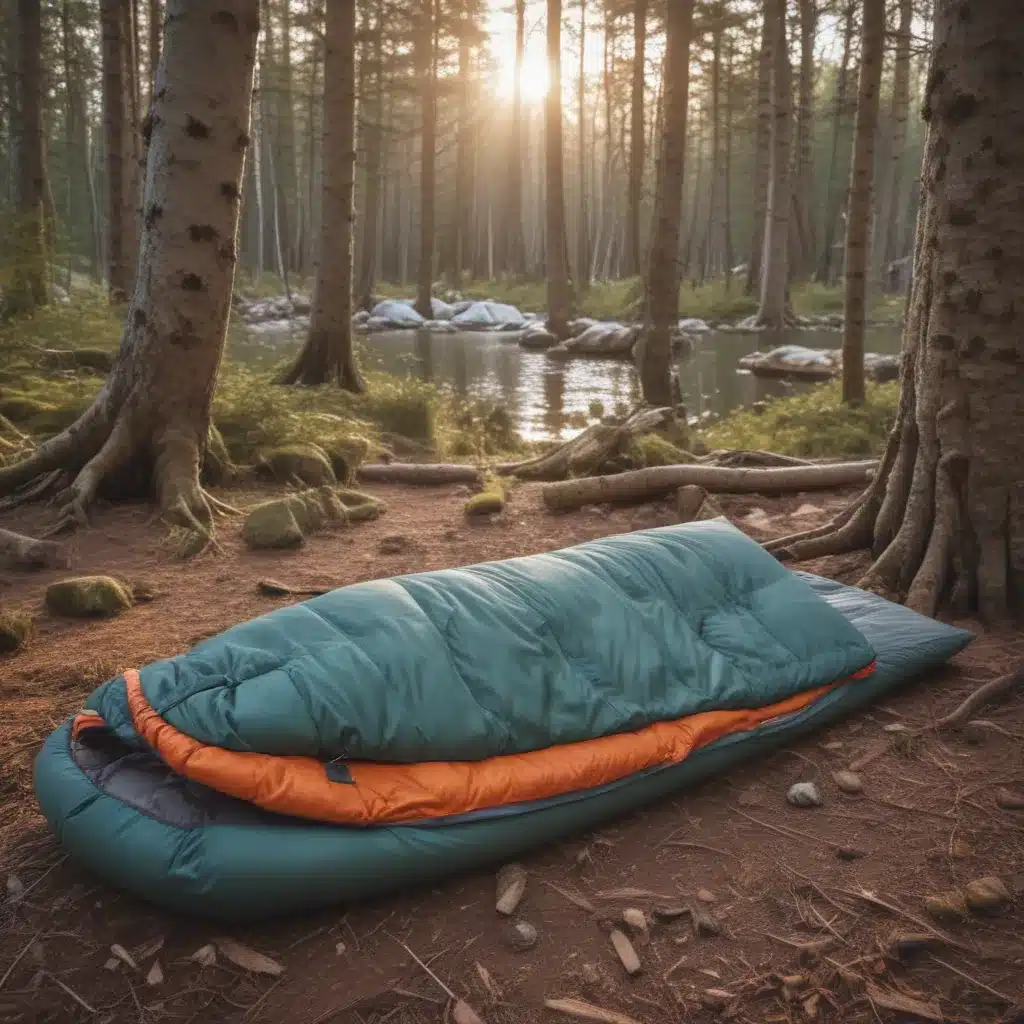
As an avid camper and outdoor enthusiast, I know the importance of having a reliable and comfortable sleep system when venturing into the rugged Scottish Highlands. Whether you’re planning a weekend getaway or a week-long backpacking trip, your sleep setup can make all the difference between a restful night’s sleep and a miserable, shivering experience.
Sleeping Bags: The Cornerstone of Your Sleep System
Selecting the right sleeping bag is arguably the most crucial decision when building your sleep system. After all, it’s the layer that will be directly responsible for keeping you warm and cozy throughout the night. When it comes to choosing a sleeping bag, there are a few key factors to consider.
First and foremost, you’ll want to pay attention to the temperature rating. Manufacturers typically provide a “limit” rating, which represents the lowest temperature at which the bag can be used comfortably. However, as the folks at Pie on the Trail recommend, it’s best to err on the side of caution and go with a bag that’s rated slightly warmer than the expected temperatures during your trip. After all, there’s nothing worse than shivering your way through the night, no matter how scenic the surroundings.
Another important consideration is the insulation type. Goose down is often regarded as the gold standard, thanks to its incredible warmth-to-weight ratio and compressibility. However, as the video from Outdoor Gear Lab explains, synthetic insulation has come a long way and can be a more budget-friendly and water-resistant option.
When it comes to the bag’s shell material, look for lightweight and durable options like ripstop nylon. This will help keep the overall weight of your sleep system down, making it easier to carry on your adventures.
Sleeping Pads: The Unsung Hero of Comfort
While sleeping bags get a lot of the attention, a high-quality sleeping pad is just as crucial for a good night’s sleep in the great outdoors. Sleeping pads come in two main varieties: inflatable and closed-cell foam.
Inflatable pads, like the popular Therm-a-Rest NeoAir XLite, offer superior comfort and a smaller packed size, making them a top choice for ultralight backpacking. However, they do come with the risk of punctures and potential failure over time.
On the other hand, closed-cell foam pads, such as the venerable Z Lite from Reddit, are more durable, weather-resistant, and wallet-friendly. They may not be as comfortable as their inflatable counterparts, but they offer a reliable and low-maintenance option.
Regardless of which type you choose, be sure to pay attention to the pad’s R-value, which is a measure of its insulating properties. For three-season camping in the Scottish Highlands, an R-value around 3.2 should provide the right balance of warmth and comfort.
Tents: Your Portable Shelter
The final piece of the puzzle is your tent, which serves as your portable shelter and the anchor of your entire sleep system. When selecting a tent, consider factors like weight, packability, and weather resistance.
For the Scottish Highlands, a sturdy three-season tent that can withstand the region’s unpredictable weather is a must. Look for models that feature a robust, water-resistant outer layer and a well-ventilated inner tent to keep you dry and comfortable, no matter the conditions.
One option worth considering is the Cosmic 2.0 from One Tigris, which seems to fit the bill for a reliable, lightweight, and versatile three-season tent.
Remember, your tent is not just a place to sleep – it’s also your refuge from the elements, so be sure to choose wisely.
Putting It All Together
By carefully selecting the right sleeping bag, pad, and tent, you can create a comprehensive and reliable sleep system that will keep you cozy and content throughout your adventures in the Scottish Highlands. And who knows, with the right setup, you might even catch a glimpse of the legendary Loch Ness Monster during your stay at Loch Ness Shores!
So, do your research, consider your needs, and don’t be afraid to invest in quality gear – your comfort and enjoyment will thank you.

